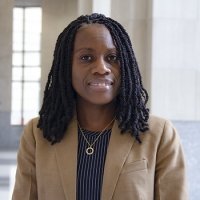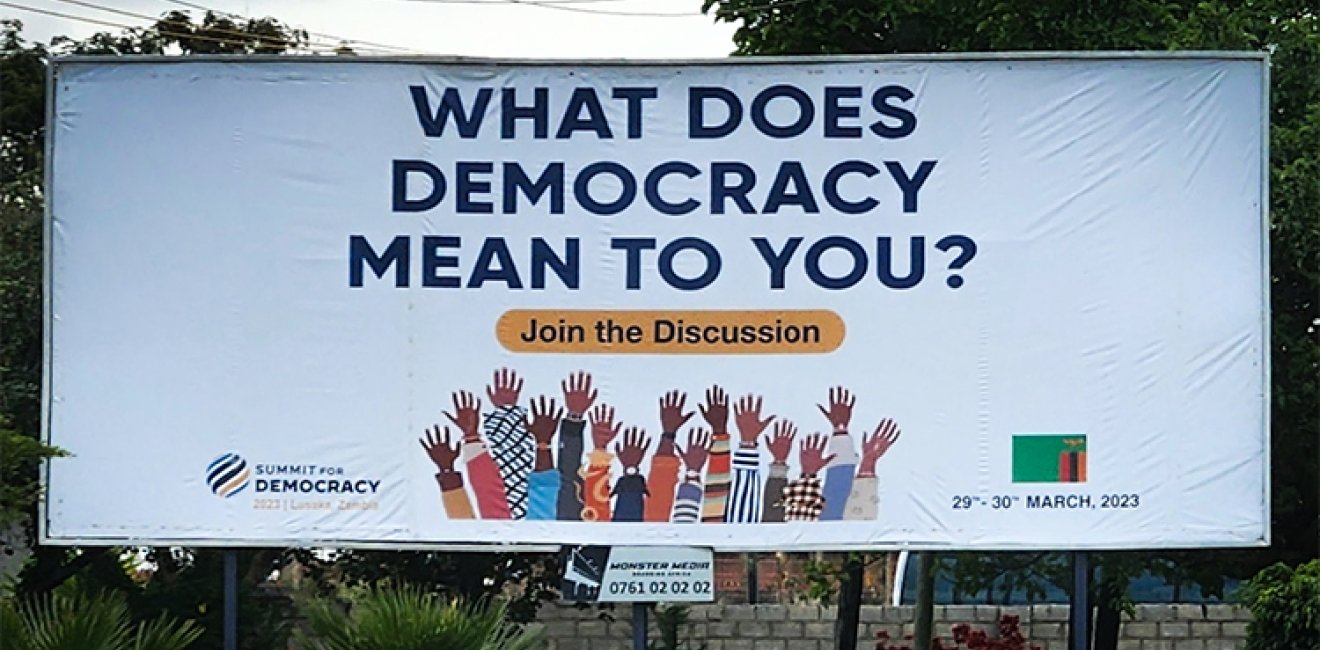In the past two weeks alone, Zimbabwe and Gabon have held elections that were roundly criticized by observers, challengers, and civil society. In Gabon, citizens cheered a military coup that deposed the leader who “won” the disputed election and whose government was widely seen as corrupt, even as questions arose about whether the military really had the people’s best interests in mind.
The tumultuous events in both countries are just the latest examples of citizen discontent across Africa with veneers of democracy and the resulting corrupt and/or ineffective governance that delivers none of the benefits they expect or need. A complex combination of pressing economic challenges, rising insecurity, and perceived (often real) political manipulation of electoral processes has left many Africans feeling disillusioned. That’s true even in countries generally considered to be democratic, such as the continent’s economic giant, Nigeria, where the electoral outcome in February also has been disputed.
The three countries are among seven African nations that have conducted or will hold presidential elections this year, along with Sierra Leone (June), Liberia (October), Madagascar (November), and the Democratic Republic of the Congo (December). Collectively, they represent roughly a third of the continent’s population, making the stakes in these elections particularly high, not only for stability and economic development but also for the future of democracy in Africa. Together with the spate of coups in the Sahel and Central Africa, these developments have deep implications for U.S. policy on the continent and underscore the need for redoubled efforts to support governance that serves the people and respects their rights.
In Nigeria, an ongoing election tribunal that has been considering petitions challenging the results of the presidential election that brought Bola Tinubu into office will deliver its ruling this week. Tinubu was sworn in as Nigeria's president in May, despite concerns raised about the electoral process, which observers said fell short of citizens’ “legitimate and reasonable expectations.” His administration has been under pressure to quickly improve the deteriorating economic and security conditions in the country, and to play a leadership role in the region now that Nigeria is the new chair of the Economic Community of West African States (ECOWAS).
In Sierra Leone, domestic and international observers criticized the June 24 electoral process as lacking transparency in the tabulation of the results. The United States recently announced it will impose visa restrictions on officials who were allegedly involved in the manipulation of the elections.
And last month, Zimbabwe Election Commission (ZEC) announced incumbent President Emmerson Mnangagwa as the winner in that country’s presidential election, only to be challenged over reported fraud and interference that have prompted the opposition to call for a re-run. Meanwhile, soldiers seized power in Gabon on August 30 and placed the president under house arrest hours after he was declared the winner in the August 26 election, which international and local observers said was fraught with irregularities. The military quickly installed a cousin of the ousted leader, the head of their republican guard, as president of a transitional committee, prompting accusations of manipulation by the family that has been in power for a half century.
The coup in Gabon was the eighth on the continent in just three years, and occurred just about a month after Niger’s own presidential guard ousted that country’s democratically elected leader. In that case, photos and video quickly emerged of citizens rallying in the streets in support of the coup, with many participants waving Russian flags, suggesting possible Kremlin-aligned influence operations along the lines of those carried out by the Russian paramilitary Wagner Group elsewhere, including in Mali.
In Mali, discontent had been growing with the French military’s intervention that began in January 2013 at the government’s request to help quell a separatist insurgency, and with United Nations peacekeepers who arrived in their wake the same year to help protect civilians. Instead, violence escalated and spread to neighboring Burkina Faso and Niger. After two coups in Mali, French President Emmanuel Macron in 2021 announced that his country’s forces would leave, and this year, Mali’s authorities refused to agree to an extension of the UN force’s mandate, which expired on June 30. In the meantime, Mali’s junta in 2021 began talking with Russia about replacing exiting French forces.
Likewise, the United States has about 1,000 troops in Niger on two drone bases for counterterrorism operations, and is preparing plans to evacuate them should the need arise.
In all these countries, the United States and some European countries have been deeply involved for years, not only in counterterrorism or other military operations, but economically and with foreign assistance focused especially on advancing democracy, the rule of law, and good governance.
But African citizens haven’t seen nearly enough results from those efforts. Insecurity has only worsened as extremist violence has spread across West Africa, undermining regional stability despite an array of counterterrorism coalitions linking foreign and African militaries in groupings such as the G5 Sahel. According to ECOWAS, the 15 States of the region recorded more than 1,800 attacks in the first half of this year, resulting in the deaths of almost 4,600 people and exacerbating the already dire humanitarian conditions. Omar Touray, a former Gambian foreign minister who is president of the ECOWAS Commission, told the UN Security Council in July that 500,000 people in the region are refugees and nearly 6.2 million are internally displaced.
Poverty and inequality are on the rise, too, despite many African countries recording some of the highest growth rates in the world. Record inflation and slow recovery from the COVID-19 pandemic amid high debt levels have sent the cost of living soaring across many parts of the continent.
For a time, Africans were remarkably forgiving. An Afrobarometer study of a series of surveys in 34 countries covering 2019-2021 found that “despite the many efforts to undermine democratic norms and freedoms, citizens continue to adhere to them. They believe that the military should stay out of politics, that political parties should freely compete for power, that elections are an imperfect but essential tool for choosing their leaders, and that it is time for the old men who cling to power to step aside.”
But disillusionment is becoming more cemented. While studies show that Africans still want regular elections, fewer now believe that elections work to deliver accountable governance. According to Afrobarometer, only one-third of Africans think election votes are always counted, and while most believe multi-party elections remain the best way to select their leaders, popular support for the exercise is weakening, as fewer think elections can help produce accountable leadership.
Furthermore, when elections are disputed, they can become a flashpoint for violence. It also weakens the public’s trust in the democratic process, which doesn’t bode well for the future of democracy on the continent. The manipulation of electoral processes and constitutional rules to extend presidential terms undermines citizens’ trust in democratic institutions. It also erodes the moral authority of Africa’s continental and regional organizations, which have struggled to rein in the autocratic tendencies of the leaders involved.
Certainly we’ve learned that elections do not equate to democracy, but clearly for most Africans, a credible electoral process at least provides some kind of benchmark for accountability and a functioning democratic society. The inability of their governments to respond to this need creates a gap that is exploited by actors such as the military who position themselves as more capable of providing what is lacking.
For U.S. policy, this suggests a need for re-energized, more coordinated and more comprehensive efforts, with African partners, to address economic inequalities, ensure transparent elections and strengthen democratic institutions. How international and regional leaders respond to disputed elections and military coups matters tremendously.
While the contexts and the motivations of political leaders and/or coup plotters differ, signs of a possible breakdown in the system are often visible long before a coup or a failed election takes place. These signals usually manifest in growing citizen discontent, but the international community often misses them—as when U.S. Secretary of State Antony Blinken called Niger a "model of democracy" just months before the coup. Part of the reason this can happen is when the United States prioritizes military assistance and cooperation, in desperation for short-term counterterrorism gains (that often themselves don't materialize), without focusing on the root causes of extremism or giving commensurate attention to longer-term investments in building democratic institutions. Likewise, economic investment must come with serious attention to governance that often undermines economic development.
Any response by foreign partners must be undertaken on the basis of mutual respect and with the interests of African citizens foremost in mind. One potential source of international solidarity with the publics in countries under stress, perhaps ironically, is that trust in democratic governance is declining not just in Africa but worldwide. An acknowledgement of this and exchanges of views on potential solutions would go a long way to affirming support for shared democratic values and practices.
While the Biden administration’s Summit for Democracy, which the United States hosted in 2021 and 2023, were symbolically significant, the results still fall far short of dismantling the incentive structures of political elites who manipulate elections in many African countries. The next summit should require participants to make and deliver concrete and measurable commitments that align with their publics’ demands for democratic progress.
The support that Africans continue to demonstrate for democracy, in polls and in their actions, shows remarkable resilience. It points to the possibilities for democratic progress in Africa and reaffirms the urgent need for comprehensive reforms that match citizens’ aspirations.
Author


Africa Program
The Africa Program works to address the most critical issues facing Africa and US-Africa relations, build mutually beneficial US-Africa relations, and enhance knowledge and understanding about Africa in the United States. The Program achieves its mission through in-depth research and analyses, public discussion, working groups, and briefings that bring together policymakers, practitioners, and subject matter experts to analyze and offer practical options for tackling key challenges in Africa and in US-Africa relations. Read more

Explore More
Browse Insights & Analysis
Greenland’s New Governing Coalition Signals Consensus

The Future of France's Far-Right Party

Ukrainian Issue in Polish Elections



